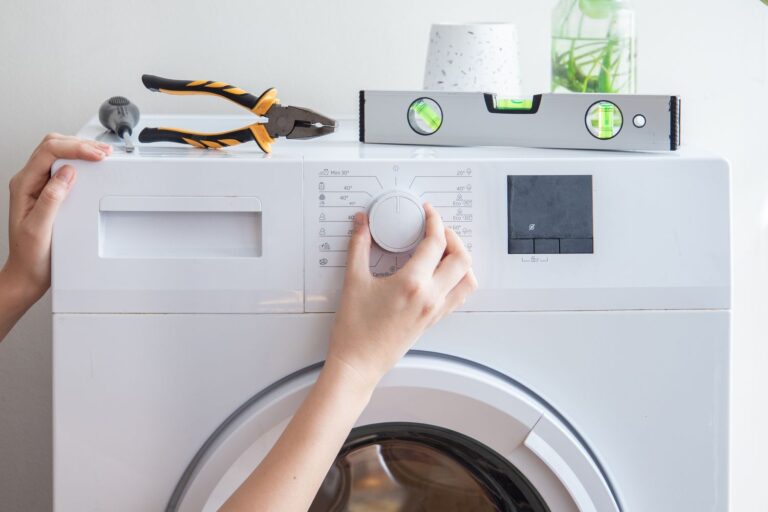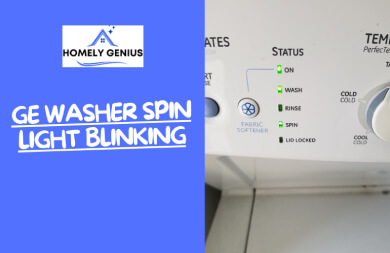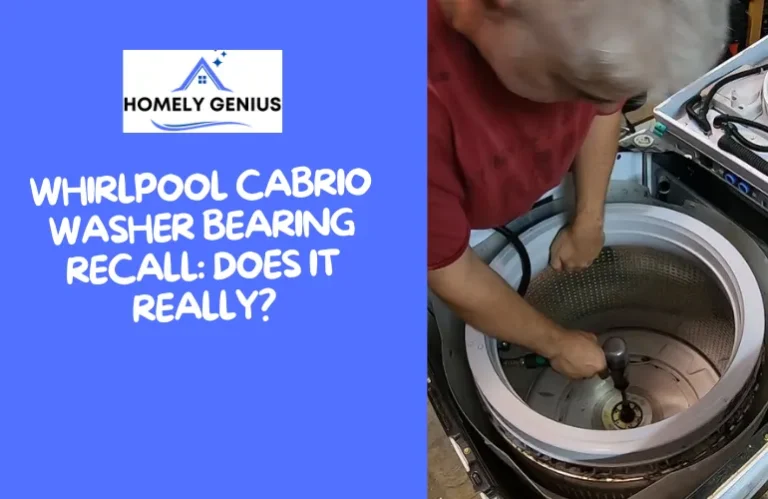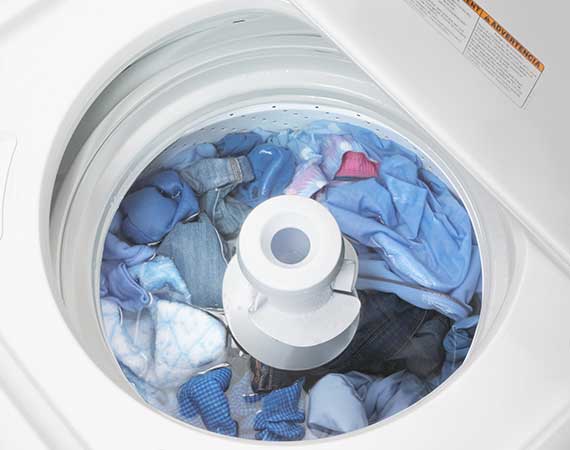Ge Clothes Washer Troubleshooting: Expert Tips and Solutions
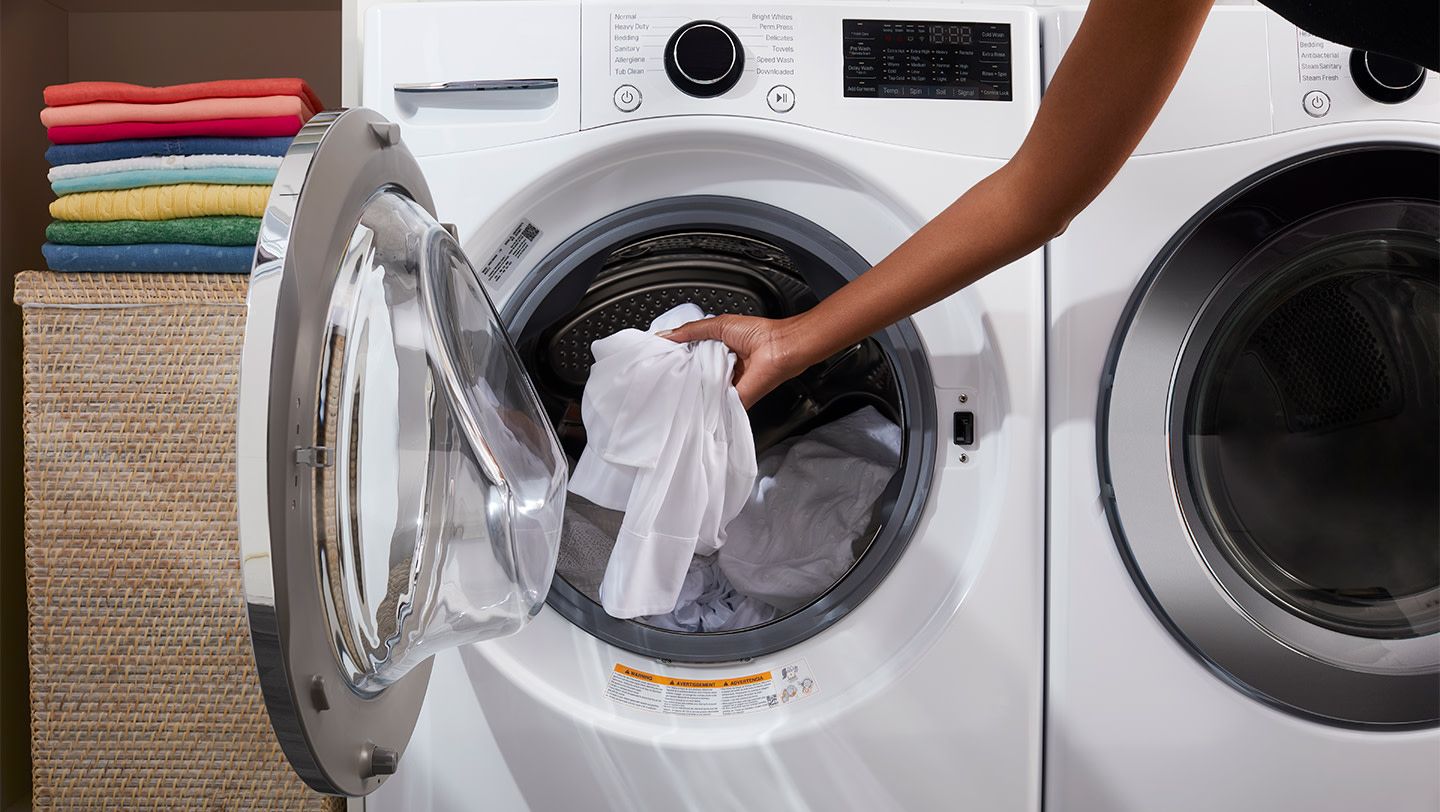
To troubleshoot a GE clothes washer, first identify the specific issue. Common problems include not starting, water leaks, or unusual noises.
GE clothes washers are reliable, but they can experience occasional issues. Identifying the problem is the first step toward a solution. Common issues like not starting, water leaks, or strange noises are usually easy to fix. For instance, a washer that won’t start might have a faulty lid switch or be improperly plugged in.
Water leaks can often be traced to hoses or connections. Unusual noises might indicate an unbalanced load or a worn-out belt. Addressing these problems promptly ensures your washer operates efficiently and extends its lifespan. Regular maintenance and timely troubleshooting keep your appliance in top condition.
Credit: www.reddit.com
Common Washer Issues
Your GE clothes washer can face various issues over time. Understanding these problems helps in quick fixes. Here are some common issues users encounter.
No Power
If your washer won’t turn on, it could be an electrical issue. Check the following:
- Power Cord: Ensure the power cord is plugged in properly.
- Outlet: Test the outlet with another device to confirm it’s working.
- Breaker: Make sure the circuit breaker hasn’t tripped.
Sometimes, the washer’s internal components can cause power issues. If the above steps don’t work, consider these:
- Control Board: A faulty control board may need replacement.
- Door Lock: The washer won’t start if the door lock is faulty.
- Thermal Fuse: Replace the thermal fuse if it’s blown.
Leaking Water
Water leaks can be messy and inconvenient. Here are some common causes:
| Cause | Solution |
|---|---|
| Hoses | Check for loose or damaged hoses. Tighten or replace them. |
| Drain Pump | Inspect the drain pump for clogs or damage. Clean or replace if needed. |
| Door Seal | Examine the door seal for wear and tear. Replace if it’s worn out. |
Ensure the washer is level to prevent leaks. Use a level tool to check and adjust the feet if necessary.
Error Codes Explained
GE clothes washers are reliable, but error codes can still occur. These error codes help identify issues so you can fix them quickly. Here, we explain the most common error codes and their meanings.
E1 And E2 Codes
The E1 error code usually means there is a water supply issue. It can be caused by:
- Clogged water inlet filters
- Closed water taps
- Low water pressure
To fix the E1 code, check the water taps and filters. Ensure the water pressure is adequate.
The E2 error code indicates a problem with the water draining. Common causes include:
- Blocked drain hose
- Clogged pump filter
To resolve the E2 code, inspect and clean the drain hose and pump filter. Make sure there are no blockages.
E3 And E4 Codes
The E3 error code means the washer has an imbalance issue. Causes might be:
- Unevenly distributed laundry
- Overloaded washer
To correct the E3 code, redistribute the laundry and avoid overloading the washer.
The E4 error code indicates a door lock problem. It can be due to:
- Obstructed door
- Faulty door latch
To fix the E4 code, ensure the door is properly closed. Check the door latch for any faults.
Addressing Noise Problems
One common issue with GE clothes washers is noise. Strange sounds can indicate different problems. This section will help you understand and fix noise issues. We will cover unusual sounds and vibration issues.
Unusual Sounds
Unusual sounds can mean different things. Listen carefully to the noise. It could be a thumping, grinding, or squealing sound. Each sound type points to a specific issue.
- Thumping Sound: Check for an uneven load. Redistribute clothes in the washer.
- Grinding Sound: This could mean a problem with the motor. You may need professional help.
- Squealing Sound: Check the washer belt. It might be worn out and need replacement.
Vibration Issues
Excessive vibration can also be a problem. Vibration usually means the washer is not level. Follow these steps to fix it:
- Check if the washer is on a flat surface.
- Use a spirit level to check all sides.
- Adjust the leveling legs if needed. Turn them clockwise or counterclockwise.
- Ensure the washer is stable before use.
If the problem persists, the shock absorbers might be faulty. Inspect and replace them if needed.
| Noise Type | Possible Cause | Solution |
|---|---|---|
| Thumping | Uneven load | Redistribute clothes |
| Grinding | Motor issue | Seek professional help |
| Squealing | Worn belt | Replace the belt |
| Vibration | Washer not level | Adjust leveling legs |
Solving Drainage Problems
Are you having drainage problems with your GE clothes washer? Don’t worry! This section will guide you through solving drainage problems. Let’s make sure your washer runs smoothly again.
Clogged Drain
A clogged drain can prevent water from leaving the washer. First, unplug your washer for safety. Then, check the drain hose for any blockages. You might find small items or lint causing the clog. Remove these obstructions carefully.
Next, inspect the washer’s drain pump filter. This filter can catch debris and cause clogs. Locate the filter, usually at the bottom front of the washer. Unscrew it and clean any debris inside. Secure the filter back properly before running the washer.
Slow Draining
Slow draining might indicate a partial clog or a kinked hose. Start by checking the drain hose for kinks or bends. Straighten the hose to ensure smooth water flow.
If the hose is clear, the issue could be a clogged drain pipe. Use a plumbing snake to clear the pipe. Insert the snake into the pipe and twist to remove any blockage.
In some cases, the washer’s drain pump might be the problem. Listen for unusual noises during the drain cycle. If you hear strange sounds, the pump may need replacement. Consult your washer’s manual or call a professional for help.
Fixing Spin Cycle Issues
Is your GE clothes washer acting up during the spin cycle? Spin cycle problems can be frustrating. This guide will help you troubleshoot and fix common spin cycle issues.
Not Spinning
If your washer is not spinning, it could be due to several reasons. Here are some steps to diagnose and fix this problem:
- Check if the lid is closed properly. A washer won’t spin with an open lid.
- Ensure the load is balanced. An unbalanced load can prevent spinning.
- Inspect the drive belt. A worn or broken belt needs replacement.
- Examine the motor coupler. This part connects the motor to the washer and can wear out.
- Look at the lid switch. If this switch is faulty, the washer won’t spin.
Uneven Loads
Uneven loads can cause your washer to shake and stop spinning. This is how to handle uneven loads:
- Stop the washer and redistribute the clothes evenly.
- Try to mix large and small items. This helps balance the load.
- Use the appropriate cycle for the type of clothes. Heavy loads need a different cycle.
- Check if the washer is level. An unlevel washer can cause uneven loads.
Use these tips to keep your washer spinning smoothly. Regular maintenance can prevent most issues.
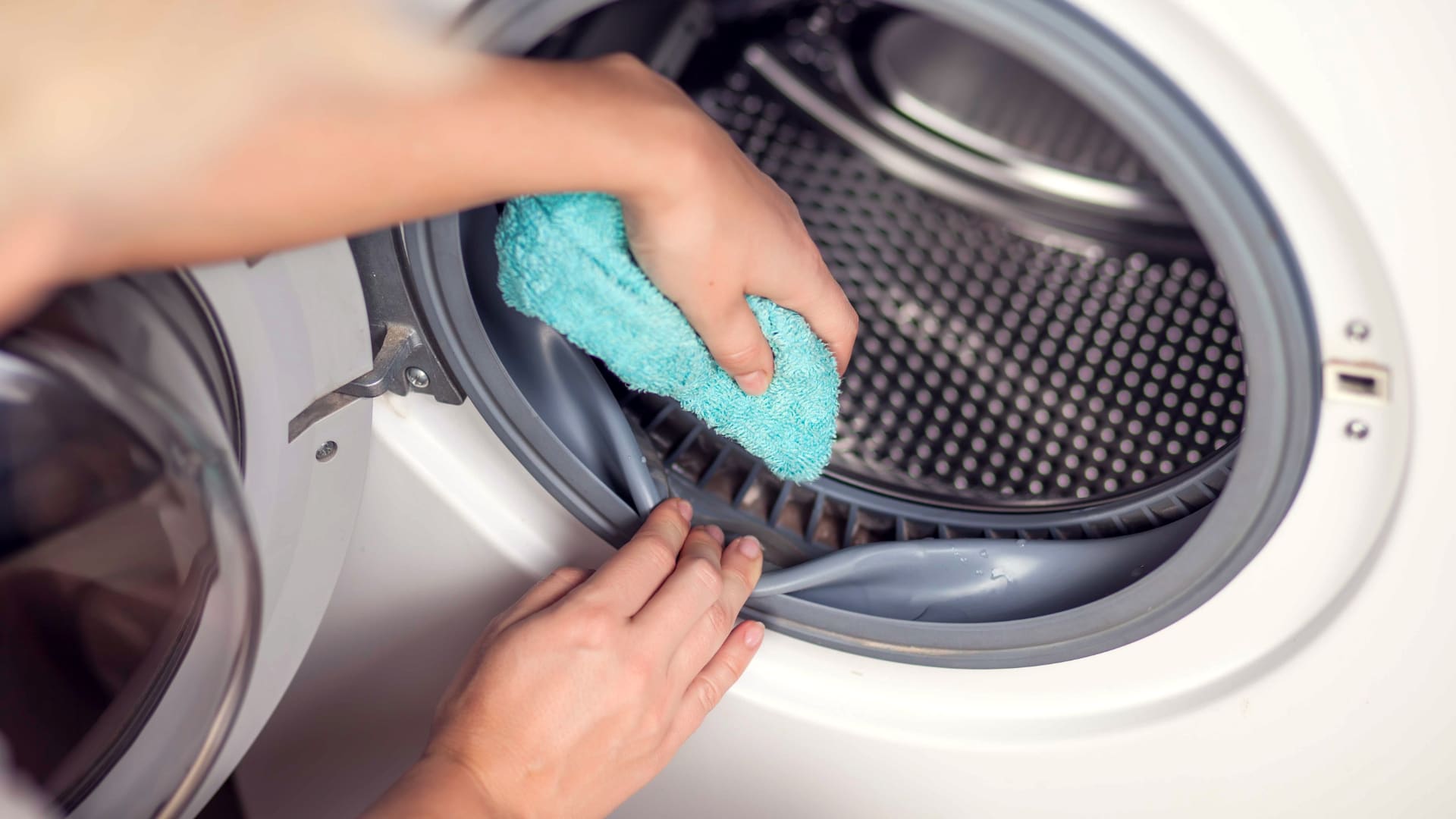
Credit: fredsappliance.com
Dealing With Soap Dispenser Problems
Soap dispenser issues can make washing clothes difficult. In this section, we will explore common problems with the soap dispenser in your GE clothes washer.
Clogged Dispenser
A clogged dispenser is a common issue. Soap residue can build up over time. This can block the dispenser.
- Remove the dispenser drawer.
- Rinse it under warm water.
- Use a soft brush to clean.
- Check for any blockages.
- Reassemble the drawer.
Cleaning the dispenser regularly can prevent clogs. Always use the right amount of detergent.
Improper Dispensing
Improper dispensing can leave soap in the drawer. This can result in poorly cleaned clothes.
- Ensure the washer is level.
- Check the water pressure.
- Make sure the dispenser drawer is not overloaded.
- Use only high-efficiency (HE) detergents.
| Problem | Solution |
|---|---|
| Soap remains in drawer | Check for clogs, use less detergent |
| Water doesn’t enter dispenser | Check water pressure, ensure washer is level |
These steps can help fix improper dispensing issues. Regular maintenance is key.
Maintenance Tips
Maintaining your GE clothes washer can save you from costly repairs. Regular upkeep ensures your machine runs efficiently. Follow these maintenance tips to keep your washer in top shape.
Regular Cleaning
Regular cleaning prevents mold and mildew buildup. To clean your washer, follow these simple steps:
- Run a hot water cycle with vinegar once a month.
- Wipe the drum, door, and gasket with a damp cloth.
- Remove any detergent residue from the detergent drawer.
- Leave the door open after each use to air out the drum.
These steps keep your washer clean and smelling fresh. They also prevent mold and mildew from forming. A clean washer ensures your clothes come out spotless every time.
Checking Hoses
Hoses are vital for your washer’s operation. Check them regularly for wear and tear. Follow these steps to ensure your hoses are in good condition:
- Inspect the hoses for any cracks or bulges.
- Ensure the connections are tight and secure.
- Replace hoses every five years to prevent leaks.
- Use stainless steel braided hoses for better durability.
Proper hose maintenance prevents water damage. It also keeps your washer running smoothly. Replace old or damaged hoses promptly to avoid any issues.
By following these maintenance tips, your GE clothes washer will last longer. Regular cleaning and hose checks are simple but effective. Keep your machine in top condition with these easy steps.

Credit: m.youtube.com
When To Call A Professional
Sometimes, your GE clothes washer might run into issues that are too complex to handle alone. Knowing when to call a professional can save you time, money, and stress. Below, we’ll explore the key factors to consider.
Diy Vs Professional Help
Deciding between DIY fixes and calling a professional can be tricky. Simple issues like a clogged drain or a jammed door can often be fixed with basic tools and a bit of patience. Here are some common DIY fixes:
- Unclogging the drain
- Cleaning the filter
- Resetting the washer
For more complex problems like electrical issues or faulty motors, it’s best to call a professional. Attempting to fix these on your own could lead to further damage and higher repair costs.
Warranty Considerations
Your washer’s warranty can also influence your decision. Most GE washers come with a warranty that covers specific parts and labor. Here are some key points to remember:
| Issue | Covered by Warranty | Recommendation |
|---|---|---|
| Electrical Problems | Usually Yes | Call a Professional |
| Motor Failure | Usually Yes | Call a Professional |
| Clogged Drain | No | DIY |
| Routine Maintenance | No | DIY |
Always check your warranty details before attempting any repairs. Unauthorized fixes can void your warranty, leading to higher costs in the future.
Frequently Asked Questions
How Do You Reset A Ge Washing Machine?
To reset a GE washing machine, unplug it for one minute. Plug it back in and lift the lid six times.
How To Put Ge Washer Into Diagnostics?
To put a GE washer into diagnostics, unplug the washer, plug it back in, and immediately press and hold the “Start/Pause” and “Cancel” buttons simultaneously for 5 seconds.
Why Is My Ge Washing Machine Not Starting Cycle?
Your GE washing machine might not start due to a tripped breaker, faulty lid switch, or door lock issues. Check for error codes.
How Do You Reset The Control Board On A Ge Washer?
To reset the control board on a GE washer, unplug the machine for one minute. Then, plug it back in and restart.
How Do I Reset My Ge Washer?
Unplug the washer for 1 minute. Plug it back in and restart.
Why Is My Ge Washer Not Spinning?
Check the lid switch, motor belt, or drive motor for issues.
Why Is My Ge Washer Not Draining?
Inspect the drain hose for clogs or the pump for blockages.
How To Fix A Leaking Ge Washer?
Tighten hoses, check door seals, and inspect the water inlet valve.
Conclusion
Troubleshooting your GE clothes washer can save time and money. Follow the steps outlined for common issues. Regular maintenance helps ensure your washer runs smoothly. Always consult your manual for specific guidance. By addressing problems early, you extend the life of your appliance.
Enjoy hassle-free laundry days with a well-maintained washer.

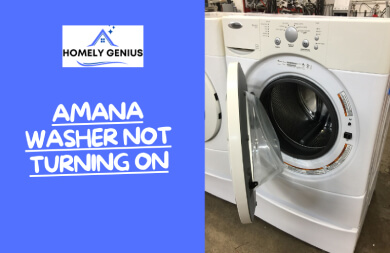
![Kenmore Washer OE Code [Troubleshooting And Fixes]](https://homelygenius.com/wp-content/uploads/2023/12/Kenmore-Washer-OE-Code-768x499.webp)
